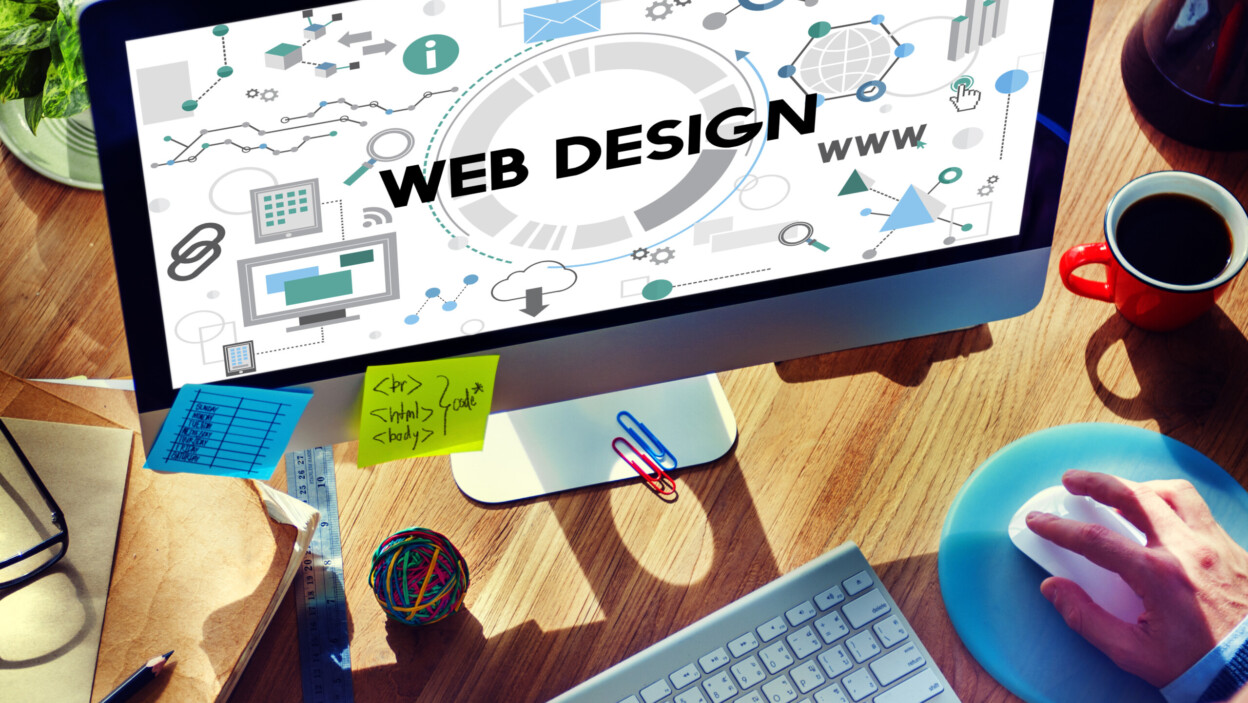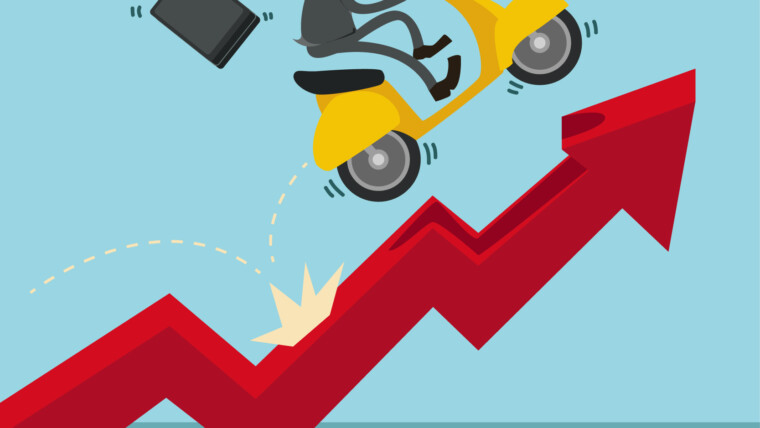In today’s digital landscape, a quality website is your biggest asset in establishing a successful online presence. It’s not just about having a website; it’s about having a website that resonates with your audience, functions seamlessly, and stands out in a crowded online space. However, with web design offerings ranging from as low as $50 services to premium packages costing $50,000 or more, navigating this extensive spectrum to pick the right service can be daunting. This article is intended to provide insights into the various direct and indirect costs involved in website design and development, helping you discern and select a service that offers the best value for your investment. Here are some of the cost breakdowns to consider:
- Website startup or operational costs (Direct costs)
- Web design and development costs
- Features and customization costs
- Search Engine Optimization costs
- Ongoing maintenance and support costs
- Sample packages and pricing
Website Startup or Operational Costs
Websites are accessed through a domain URL and are hosted in a central location. There are certain unavoidable costs associated with hosting a website. These one-time or recurring direct costs are vital for keeping the website up, secure, and running smoothly.
Domain Registration
The first step in carving out an online presence is acquiring a domain name—your website’s address on the internet, like www.yourbusinessname.com. The cost of domain registration varies, ranging from $10 to $50 per year, depending on the domain type and the registrar you select. Securing the most sought-after domains can be challenging, and acquiring a specific name might command a premium price.
Web Hosting
Web hosting is a service that offers the technologies and services needed for your website to be viewed on the Internet. Hosting costs can widely vary, starting as low as $3 per month for shared hosting to over $300 per month for dedicated hosting, depending on the provider and the selected plan.
SSL Certificate
An SSL certificate is crucial for ensuring a secure connection between your website and your visitors, particularly if you deal with sensitive data. It’s also a significant factor for SEO rankings. The prices for SSL certificates can range from $0 (some hosting providers offer free SSL) to $200 per year, depending on the level of validation and the provider.
Content Management Platforms
Many websites are developed using a Content Management System (CMS), facilitating easy content updates and management. WordPress is a well-known free option, but several premium CMS options, like Shopify and Adobe Experience Manager, are available, with costs varying based on features and providers. These premium options often come with additional licensing or subscription costs.
Themes and Plugins
Depending on the CMS you choose, you might need to purchase themes or plugins to modify the appearance and enhance the functionality of your site. These can be free or cost several hundred dollars, depending on their complexity and feature set.
Web design and development costs
Web design and development costs are the time (labor) and material costs involved in creating an impactful online presence. Good web design often involves several experts, including branding or marketing specialists, graphics designers, web developers, content creators, and more. Additionally, crafting a modern look and feel requires design and development tools that may influence pricing. The type of resources and location of the service providers can hugely impact your costs. Here are a few breakdowns that can impact web design and development.
Branding
This forms the foundational aspect of your online identity, incorporating elements like logo design and visual identity. It establishes the aesthetic tone, resonating with the audience and reflecting the brand’s ethos. Costs here can range widely, depending on the complexity and designer expertise involved. The two main components of branding are:
Logo Design: The cost of designing a logo can range widely, from a few hundred to several thousand dollars, based on the designer’s expertise and the complexity of the design.
Visual Identity: Creating a cohesive visual identity involves additional costs, including selecting color schemes and typography that align with your brand personality and are consistent across all platforms and materials.
Design and Development
This segment involves the creation of a functional and visually appealing website, including graphic design, UI/UX design, theme selection, and layout configuration. The expenses in this category depend on the level of customization, the intricacy of the design elements, and the proficiency of the designers and developers involved.
Graphic Design: Incorporating custom graphics can enhance the visual appeal of your site, with costs varying based on the number and complexity of the graphics required.
UI/UX Design: Investing in intuitive user interfaces (UI) and user experiences (UX) is essential for user retention and engagement. The cost is contingent on the level of customization and the designer’s expertise.
Theme and Layout– Selecting and customizing a theme and layout involve additional expenses, which fluctuate based on the chosen theme’s cost and the extent of customization needed.
Content Creation and Management
Content is integral to engaging users and conveying the brand message effectively. It includes creating, managing, and updating various content forms like text, images (photos, animations, etc.), and videos. Costs here are influenced by content volume, complexity, and whether it’s created in-house or outsourced.
Features and customization costs
The evolution of modern websites has transformed from static, simple web pages to sophisticated, intelligent applications capable of performing a multitude of tasks autonomously, thereby reducing significant manual effort. With proper customization and automation, today’s websites can drive inbound traffic, actively engage visitors, generate leads, and facilitate conversions at precisely the right moments—all without the necessity for manual touch-points or interventions. However, incorporating these advanced features and customizations can have a considerable impact on the overall costs of design and development.
E-Commerce Features
E-commerce features are tailored to facilitate online purchasing and ensure user-friendly experiences and secure transaction processing. These features, including secure payment gateways and streamlined checkout processes, are essential to building user trust, reducing cart abandonment, and enhancing transaction efficiency. Additionally, responsive design ensures optimal viewing across devices, and an SEO-friendly structure enhances online visibility, driving traffic and sales. Integrated customer support, often including chatbots and contact forms, further augments the user experience by providing immediate assistance and support.
Digital Marketing Features
Marketing automation features on a website are integral to streamlining and optimizing marketing tasks and workflows, enhancing user engagement and conversions. These features encompass automated lead generation via forms, pop-ups, and landing pages, allowing efficient capture of potential customer information. Additionally, user behavior tracking and analytics are pivotal, providing essential insights into user interactions, informing content, user experience, and strategy optimizations, ultimately aiming to tailor the user journey meticulously and boost conversion rates.
Automation and AI features
Website automation and AI features like chatbots are revolutionizing user interaction and operational efficiency. These technologies perform a range of automated tasks and offer real-time responses, significantly reducing the need for human intervention and subsequently decreasing operational costs. For instance, chatbots provide instant customer support, answer frequently asked questions, and even assist in the lead generation process, making them indispensable for enhancing user experience and satisfaction. Beyond customer interaction, automation features also extend to data analysis, content optimization, and personalized user experiences, allowing businesses to optimize their online presence and functionality efficiently and effectively.
When picking your digital services, ensure the price reflects any additional features or customization.
Search Engine Optimization costs
The ultimate goal of a website is to drive traffic to it. Even though there are many channels that can drive traffic, as a starter website, the website should incorporate some level of SEO into the web pages, ensuring your website can drive organic traffic. SEO is very broad and may require specialized expertise. Some service providers have built-in SEO optimization in their services.
On-Page SEO
On-page SEO costs revolve around optimizing individual pages on the website, involving content quality, keyword optimization, meta tags, headers, and images. These enhancements are critical for improving the website’s relevancy to search queries, potentially leading to better rankings.
Technical SEO
Technical SEO pertains to optimizing the website’s structural aspects, and it’s essential for improving the website’s crawlability and indexation by search engines. This encompasses optimizing site speed, mobile friendliness, security, and XML sitemaps. The costs associated with technical SEO can be substantial, given its complexity and the expertise required to implement these optimizations effectively.
Local SEO
Local SEO focuses on optimizing the website for a local audience and is pivotal for businesses serving specific geographic locations. This includes optimizing the website for local keywords, managing local business listings, and accumulating reviews. The cost of local SEO varies depending on the extent of optimization required and the competitive landscape of the local market.
The cumulative cost of SEO services can range widely, depending on the scope, the level of expertise needed, and the ongoing efforts to maintain and improve the search engine rankings. The inclusion of SEO considerations from the outset of website design and development can be cost-efficient and can lay the foundation for long-term online success.
Website Support and Maintenance
Website maintenance and support are ongoing efforts to keep your website up and running. Depending on the website’s complexity and features, the level of support required may differ.
One essential aspect of website maintenance is monitoring. Regular monitoring ensures all components are functioning correctly and detects any issues or vulnerabilities promptly. This involves monitoring site uptime, performance, and security. The cost of this service can vary depending on the frequency and depth of the monitoring required.
Second, regular backups of the website’s data and content are essential to prevent the loss of information in case of a failure or security breach. The costs related to backups will depend on the backup frequency, storage requirements, and the method of backup chosen.
Additionally, websites often require revisions and updates to the content, design, or features to stay relevant, user-friendly, and secure. This could involve updating the CMS, plugins, and themes, adding new content, or revising existing content and design elements. The cost of revisions and updates can range widely based on the scale and complexity of the changes made.
Furthermore, maintenance also includes regular security checks and updates to protect the website from vulnerabilities, malware, and other security threats. This includes updating security plugins, conducting security audits, and implementing security best practices. Security maintenance costs will be contingent on the level of security needed, the type of website, and the frequency of checks and updates.
Sample web design packages and price ranges
Launching a quality website that conforms to the standards, drives the right visitors, provides relevant content, and converts at the right time involves a multitude of expertise, features, and customization. Establishing your website goals and objectives would help you hire the right service provider and get what you need. Here are some sample packages and price ranges.
Basic Services: $1,000 to $5,000
Basic web design services are suitable for small businesses or individuals with fundamental needs and a limited budget. Typically starting at $1,000, these services usually offer template-based designs with standard functionalities. At this price range, clients can expect a responsive design, basic SEO optimization, and perhaps a content management system to facilitate updates. It’s a cost-effective solution for those who need a simple online presence without extensive customization.
Mid-Range Services: $5,000 to $15,000
Mid-range services are ideal for businesses that require more custom features and a distinctive online presence. Prices generally fall between $5,000 and $15,000. Services in this range offer a blend of customization and functionality, often including branding, enhanced SEO, e-commerce capabilities, and some level of automation. It’s a suitable range for businesses looking for branded websites with some level of built-in automation that can drive traffic and capture leads.
Premium Services: $15,000 and Upwards
Premium web design services are tailored for businesses seeking more specialized design (like 3D, illustrations, etc.), advanced automation features, comprehensive SEO, and a higher level of customization. Starting at $15,000, these services delve deep into the brand’s needs, crafting custom designs that align with the business goals and identity. Premium services are ideal for businesses that prioritize quality and uniqueness and are willing to invest in a sophisticated online presence that stands out.
Summary
In summary, modern websites are one of the key business assets. Establishing a good website can drive growth and increase your bottom line. But it comes with a cost. Additionally, creating a website is not a one-time endeavor; it is an ongoing effort. Launching a website with essential features and upgrading as you go may work best for a new business. Minutly services are curated with particular goals and objectives. Check out the service details, understand the deliverables, clarify any questions, and consult when required.








50+ Website features that makes running a business easier
Top 10 essential features for a SaaS website
Website with a purpose: How to drive quality website traffic?
Website with a purpose: How to capture more leads.
What is a Service Catalog?
Top 10 Essential Sales Service Requests Every Business Should Offer
Sharing your Minutly Catalog
Setting up your catalog